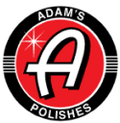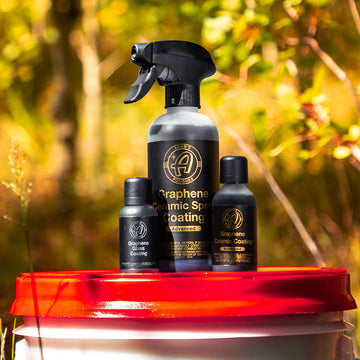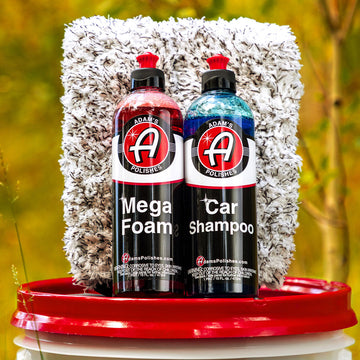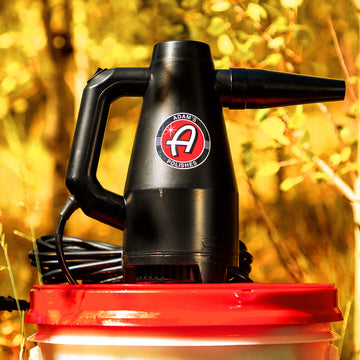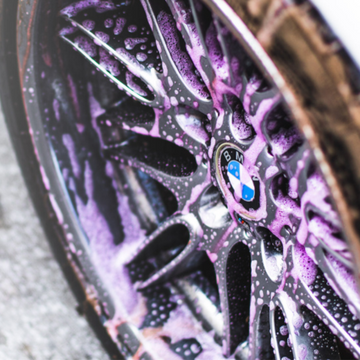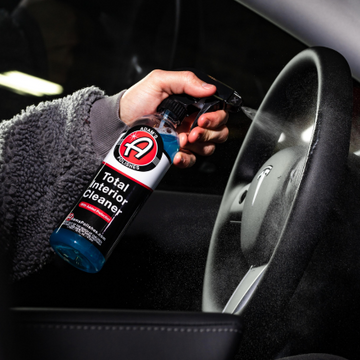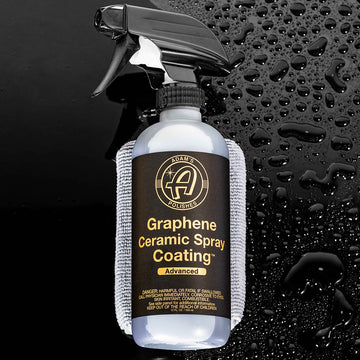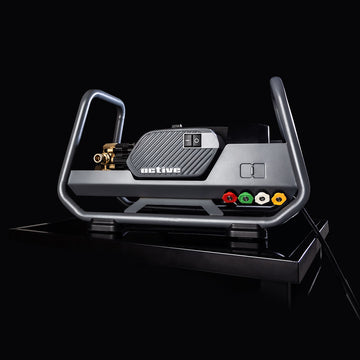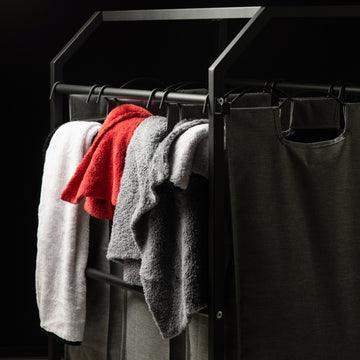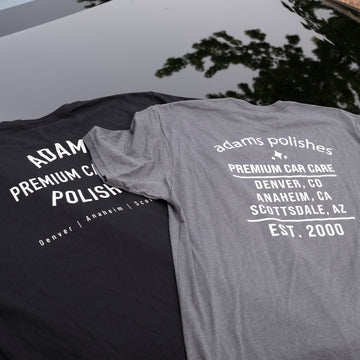So you’re tired of dealing with pesky water spots after every wash and you’re ready to fix this problem with a water deionizer, but you look at our website and see all sorts of things that may confuse you more - bypass valves, TDS readings, resin, PPM levels, pro-grade or not…it can be a little overwhelming, but we’re here to help! At Adam’s Polishes, we have a few different options when it comes to water deionizer setups, and figuring out the right setup for your particular situation might be a challenging decision, but we’ll help walk you through it in this quick blog entry.
Which Deionizer Is Right For You?
Introduction
WHAT IS A DEIONIZER?
Some of you might not be familiar with the term water deionizer, or what is the point of owning one? A water deionizer connects to a water source high in mineral content, and filters out the minerals using an internal resin. The water deionizers that we offer are not to make filtered drinking water, since you still want to have some minerals in drinking water; however, when it comes to washing vehicles, any minerals present in the water create water spots on the surface when they dry, so a water deionizer is designed to take the mineral level of your water source down to as near-zero parts per million (PPM) as possible. Having a Total Dissolved Solids (TDS) reading of 20 ppm or lower will allow water to dry on a surface as a spot-free rinse, meaning you will not have to dry the vehicle with a forced air blower like the Air Cannon or use a drying towel like the Ultra Plush Drying Towel.
Adam's Basic Portable Spotless Water Deionizer
Adam's Standard Portable Spotless Water Deionizer
Adam's Pro Portable Spotless Water Deionizer
DEIONIZER COMPARISONS
We partnered with On The Go to offer three different Portable Spotless Water Deionizer options for customers, that provide laboratory grade deionized water for spot-free rinsing of your car during the wash process. Each deionizer functions the same, but they differ in size, price point, and the amount of water they can filter before the resin will need to be replaced. Each option also comes with a TDS meter so that you can determine the current level of minerals in your water supply. Let’s go over the main aspects of each unit and where they would best be suited below.
Basic - Portable Spotless Water Deionizer
The Basic deionizer is the entry-level option for hobbyists on a budget, or for those that may occasionally wash one or two vehicles. This is the smallest and most portable deionizer that we offer, with the easiest setup. The Basic deionizer has one water inlet and one water outlet and constantly filters any water that is run through it since it does not have a bypass valve. This means that you will be using filtered water for the initial rinse, filling your wash bucket if you use the hose, optional foam cannon or foam gun wash, and final rinse of the vehicle. This will be the absolute safest way to avoid any water spot formation while you wash, but the resin will lose its effectiveness and ability to filter out minerals more quickly than the other two deionizers, since you cannot easily switch from unfiltered to filtered water.
The price of the Basic Deionizer is about 40% less than the next model up, the Standard Deionizer, so the initial upfront cost is much less, but depending on how often you wash vehicles, you will be replacing the resin more often, so the continual use costs could be more money in the long run. The Basic Deionizer filters up to 560 gallons of water with a water TDS reading of 100 ppm, which would be typical for most city water supplies. Very hard water or well-water will filter less than 560 gallons per resin refill, so if this is your situation, you may want to consider the next option up, which is explained below.
Standard - Portable Spotless Water Deionizer
The Standard deionizer has double the resin capacity of the Basic unit, at the same physical height, but with a larger overall diameter. This means it can filter double the amount of water at 1,120 gallons if you have a water source measuring at 100 ppm. One of the other key differences with the Standard deionizer is that it includes additional hardware in the form of a bypass valve. This bypass valve allows you to choose when you want to use the pure, filtered water, or the regular water source.
By using regular water for your pre-rinse and then switching over to filtered water for the final rinse of the soap residue after washing, this essentially will double the life of the resin, since you are only using deionized water for half of each wash. So the Standard deionizer has the ability to last 4 times longer per resin refill than the Basic deionizer. This makes the Standard unit an excellent choice for households washing multiple vehicles per week or mobile detailers that need a larger capacity deionizer while still being very portable at approximately 32 pounds. At a higher reading of 200 ppm for the source water, and using approximately 5 gallons of filtered water to rinse, you should be able to rinse about 90 vehicles before needing to refill the resin.
Pro - Portable Spotless Water Deionizer
The Pro deionizer takes things up a few big notches above the Standard deionizer! The Pro version is double the size up again, holding 40 pounds of resin compared to the 20 pounds of resin in the Standard deionizer. It has the same bypass system, so you can choose to run pure filtered water all of the time, or switch it off and back on for the rinse process only. This means you can filter up to 2,240 gallons of water if the inlet water reads at 100 ppm, or again, if the reading was higher at 200 ppm, and using about 5 gallons to rinse a vehicle, you would be able to rinse over 220 standard size vehicles before needing to replace the resin. The Pro deionizer is ideal for a detailer or detail shop going through a large volume of washes. At 4-feet tall, it is still able to be mounted into most panel vans, sprinters, transits and so on for mobile detailing, but it would not work well with some trucks and other vehicles. Due to the tall and thin design, the Pro deionizer only takes up 10”x10” of floor space, so like the Basic and Standard models, it can still be put just about anywhere in your garage or shop.
Replacing The Resin
Each Deionizer comes pre-loaded with the appropriate level of virgin, high-grade, non-regenerated/recycled resin to ensure the best operation for the longest amount of time. When you begin to notice that the TDS reading of your water is greater than 50 ppm on the included meter, that is when it is time to replace the resin. We provide Resin Refills in the appropriate sizes for each model of deionizer - a 10 pound bag for the Basic deionizer, 20 pound bag for the Standard deionizer, and 40 pound bag for the Pro deionizer. The used resin itself is non-toxic, so it can be disposed of in your trash. Pour the used resin into a separate container or bag, then place that into your normal trash bag for collection. Do not pour the resin into a sink or flush it down a toilet.
DEIONIZER COMPARISON CHART
| BASIC | STANDARD | PRO | |
|
PROS |
|
|
|
|
CONS |
|
|
|
|
RESIN REFILL |
10 lb Refill Bag |
20 lb Refill Bag |
40 lb Refill Bag |
10 lb Resin Refill Bag
20 lb Resin Refill Bag
40 lb Resin Refill Bag
Summary
This wraps up our quick overview and explanation of the multiple portable spotless water deionizers that we offer. We covered why you may want a deionizer in your household, shop, or mobile setup for washing vehicles, the similarities and differences between each unit to see which one might be best for your needs, and the process for refilling the resin once it has exhausted its filtering capabilities. Then we concluded with a pros and cons comparison chart of each deionizer. If you are uncertain about any product or process, or have any questions in general, feel free to contact us at tips@adamspolishes.com, or reach us on our online communities on Adamsforums.com, Instagram, and Facebook, as well.
